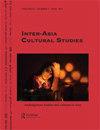Chinese Killer King: trespassing the boundaries of crime fiction and Cantonese literature
IF 0.4
4区 社会学
Q4 ANTHROPOLOGY
引用次数: 0
Abstract
ABSTRACT This essay introduces readers to a Cantonese writer, editor, and director, Yam Wu-Fa/Ren Huhua (?-1976), whose creative life peaked between the 1930s and the 1950s among a Cantonese-speaking readership across the Pacific. Pertinent to our discussion is his crime fiction series, Chinese Killer King (zhongguo sharenwang). The Killer King, “Charlie Chiu”—not to be confused with Earl Derr Biggers’s “Charlie Chan”—is a Cantonese borderland hero who derives from various references, both fictional and historical, addressing a cosmopolitan yet Cantonese imaginary. Overlooked, Yam and his works represent more than the marginalisation that is commonly experienced by Southernly “popular fictions” in a histography under an elitist and Shanghai-Beijing-centric framework. Chinese Killer King challenges the kind of place-bound identity politics evident in today’s discussion on Hong Kong literature and Sinophone writings. The author hence explores the possibility of using “Cantonese literature” as a critical framework to historicise and theorise a Cantonese-ness and its border-crossing dimension and discusses how the series may be positioned among world crime fictions.《中国杀手王:跨越犯罪小说与粤语文学的边界》
本文向读者介绍一位广东作家、编辑、导演任虎华(?-1976)。任虎华的创作生涯在20世纪30年代至50年代期间达到顶峰,在太平洋对岸讲粤语的读者中颇受欢迎。与我们的讨论相关的是他的犯罪小说系列《中国杀人王》。杀手王,“赵查利”——不要和厄尔·德尔·比格斯的“陈查利”搞混了——是一个广东边陲的英雄,他有各种各样的参考资料,既有虚构的,也有历史的,表达了一个世界主义的广东人的想象。任志刚和他的作品所代表的,不只是南方“通俗小说”在精英主义和以上海-北京为中心的框架下普遍经历的边缘化。《中国杀手金》挑战了今天在香港文学和华语作品讨论中明显存在的地域认同政治。因此,作者探讨了用“广东文学”作为一个批判框架,将广东性及其跨界维度历史化和理论化的可能性,并讨论了该系列如何在世界犯罪小说中定位。
本文章由计算机程序翻译,如有差异,请以英文原文为准。
求助全文
约1分钟内获得全文
求助全文
来源期刊

Inter-Asia Cultural Studies
Multiple-
CiteScore
0.90
自引率
20.00%
发文量
22
期刊介绍:
The cultural question is among the most important yet difficult subjects facing inter-Asia today. Throughout the 20th century, worldwide competition over capital, colonial history, and the Cold War has jeopardized interactions among cultures. Globalization of technology, regionalization of economy and the end of the Cold War have opened up a unique opportunity for cultural exchanges to take place. In response to global cultural changes, cultural studies has emerged internationally as an energetic field of scholarship. Inter-Asia Cultural Studies gives a long overdue voice, throughout the global intellectual community, to those concerned with inter-Asia processes.
 求助内容:
求助内容: 应助结果提醒方式:
应助结果提醒方式:


